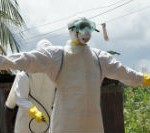May 2015
The Medical Officer of Health (MOH) reports provide evidence that behind the high-profile medical advances of the 19th and 20th centuries in the UK, the vast improvement in the nation’s health was largely the result of the bread and butter of public health: clean water, adequate sewerage, immunisation, better housing and improved diets.
In the second half of the 19th century, public health became increasingly professionalised: the Association of Metropolitan Medical Officers of Health was formed in 1856, a year after new legislation reorganised London into 48 districts, each with its own MOH. Professional knowledge was disseminated in the often lively exchanges in ‘Public Health’ and later in ‘The Medical Officer’.
The reports were produced each year by the Medical Officer of Health (MOH) of a district and set out the work done by his public health and sanitary officers. The reports provided vital data on birth and death rates, infant mortality, incidence of infectious and other diseases, and a general statement on the health of the population. Check the website of the Wellcome Library.

Curve showing the number of cases notified week by week of scarlet fever, diphtheria, and typhoid fever, during 1899. MOH report for Limehouse District, 1900.
Read the articles written by researchers from the Wellcome Trust Centre already published published in HCS Manguinhos:
Bhattacharya, Sanjoy. Struggling to a monumental triumph: re-assessing the final phases of the smallpox eradication program in India, 1960-1980. Hist. cienc. saude-Manguinhos, Dec 2007, vol.14, no.4, p.1113-1129. ISSN 0104-5970
Browne, Janet. Natural History collecting and the Biogeographical tradition. Hist. cienc. saude, 2001, vol.8, p.959-967. ISSN 0104-5970
Eraso, Yolanda. Migrating techniques, multiplying diagnoses: the contribution of Argentina and Brazil to early ‘detection policy’ in cervical cancer. Hist. cienc. saude-Manguinhos, July 2010, vol.17, suppl.1, p.33-51. ISSN 0104-5970








